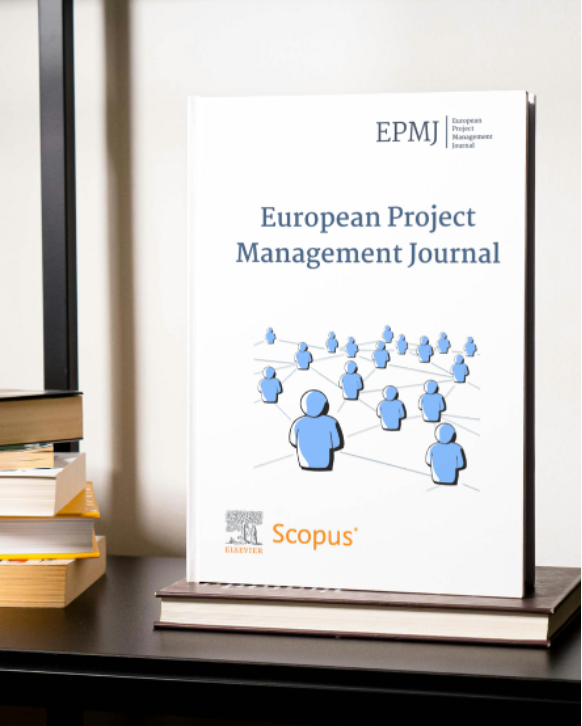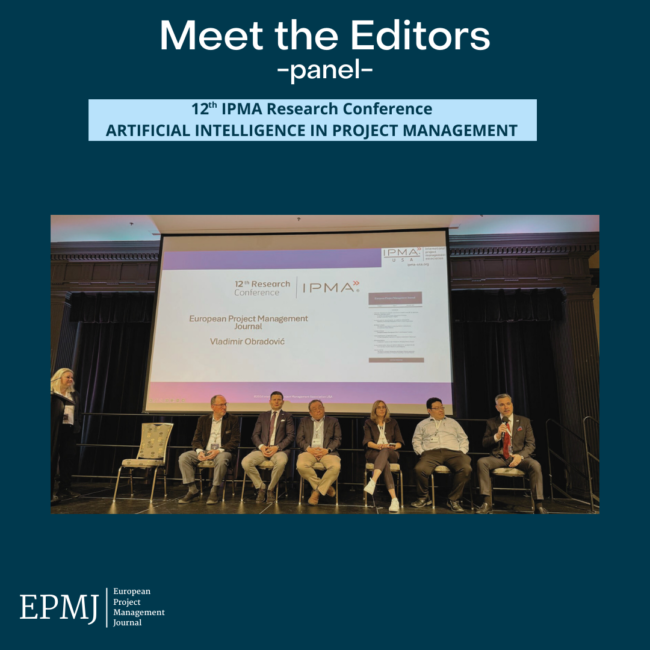European Project Management Journal presented at the 13th IPMA Research Conference
Prof. Vladimir Obradović, the Editor in Chief of the European Project Management Journal, introduced the journal during the panel “Meet the Editors” at the 13th IPMA Research Conference ”Honoring 60 years of Project Management: Leading the Way into the Future” held in Dubai from April 9-11 2025. He emphasised the importance of research in the field of project management for the further advancement of professional practice and the academic community. Prof. Obradović highlighted that the EPMJ plays a crucial role in promoting innovative methods, best practices, and theoretical discussions in the project society.
As part of the panel moderated by Prof. Ronggui Ding, IPMA Vice President Research and Publications, renowned editors of leading international journals in the field of project management gathered:
- International Journal for Project Management – prof. dr Martina Huemann,
- Project Management Journal – prof. dr Ralf Müller
- International Journal of Managing Projects in Business – prof. dr Nathalie Drouin
- Organization, Technology and Management in Construction: an International Journal – prof. dr Mladen Vukomanović
- European Project Management Journal – prof. dr Vladimir Obradović
- Project Leadership and Society – prof. dr Martina Huemann
The editors shared with the participants valuable insights into the current challenges faced by academic journals in the field of project management. They specifically addressed the selection of relevant topics, the growing need for multidisciplinary approaches, the importance of clarity in defining research objectives and methodology, as well as the responsibility of researchers to present reliable and practically useful results.
The discussion also covered the transparency and quality of the peer-review process, ethical standards in academic publishing, and the increasing demand for open access and greater visibility of research outcomes. Editors encouraged researchers not to overlook the practical applicability of their work and to strive for publishing content that bridges theory and practice. This panel provided valuable insights for both early-career researchers entering the academic world and experienced authors aiming to publish in high-ranking journals. It also served as a form of guidance on how to successfully prepare a scientific paper, what topics are currently in demand, and how to approach the peer-review process.
In the final part of the discussion, the editors encouraged researchers to be bold in their research endeavors, to recognize the importance of high-quality research for the advancement of the profession, and to use international journals as platforms for dialogue, knowledge exchange, and contribution to the global project management community.
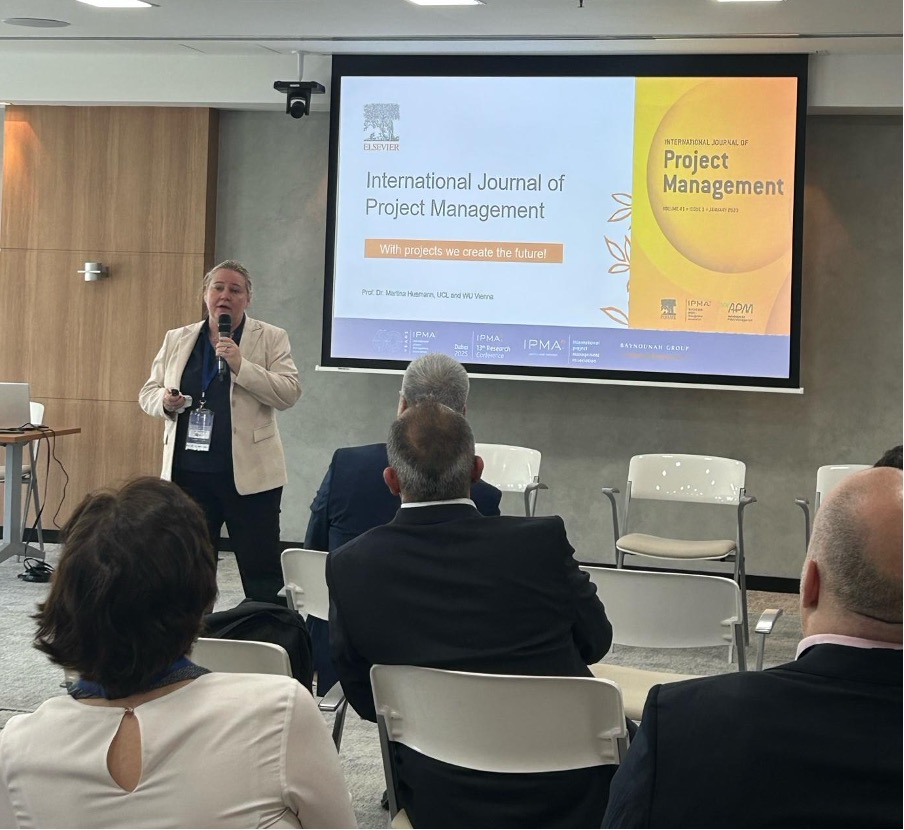
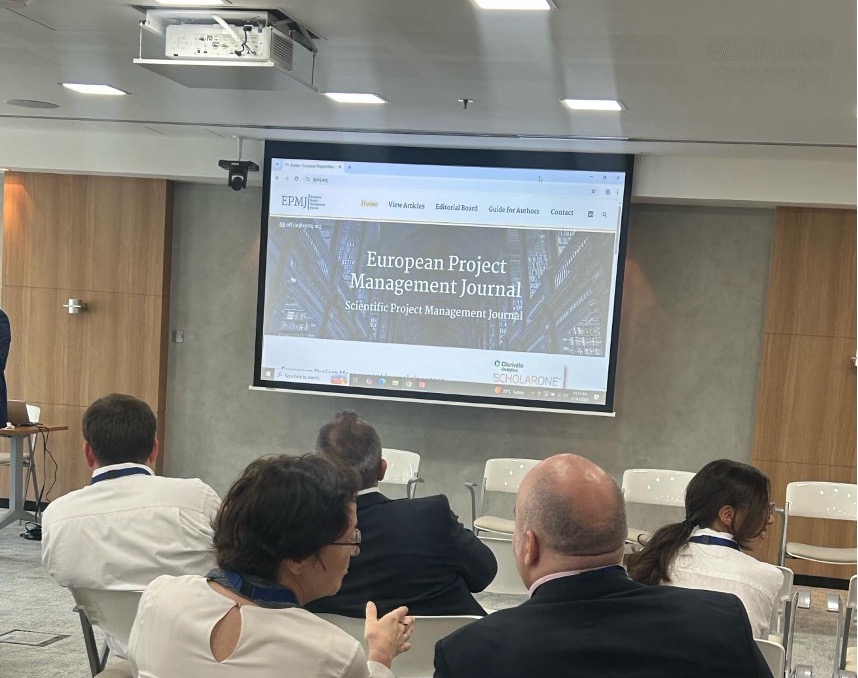
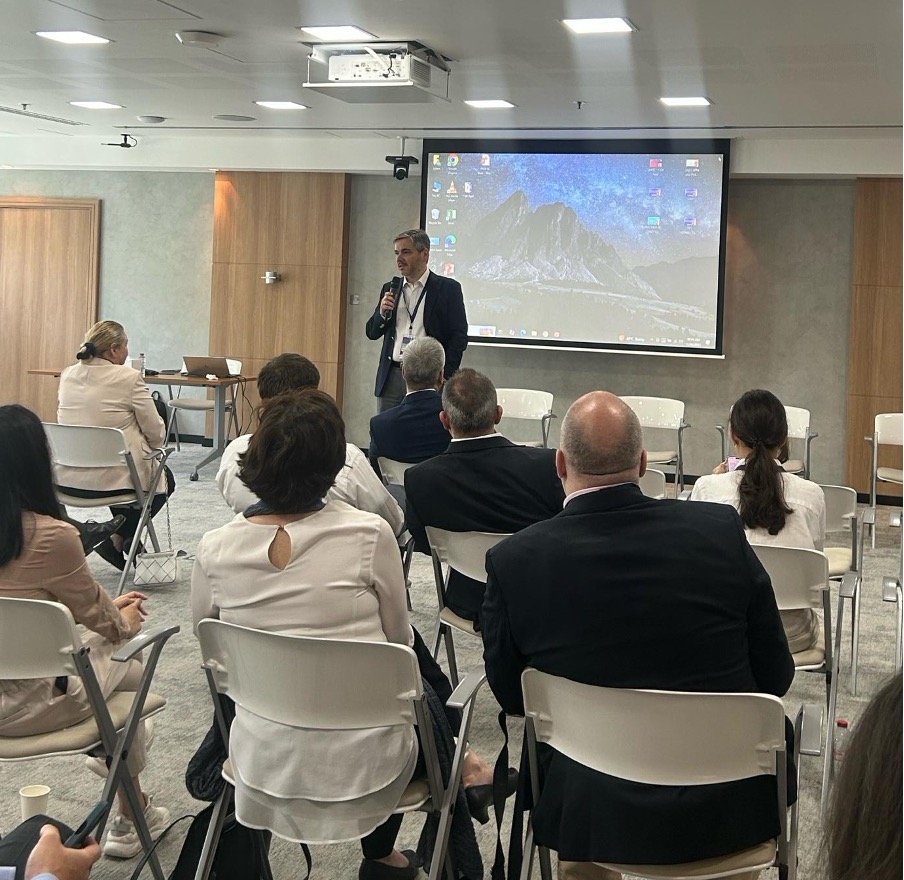
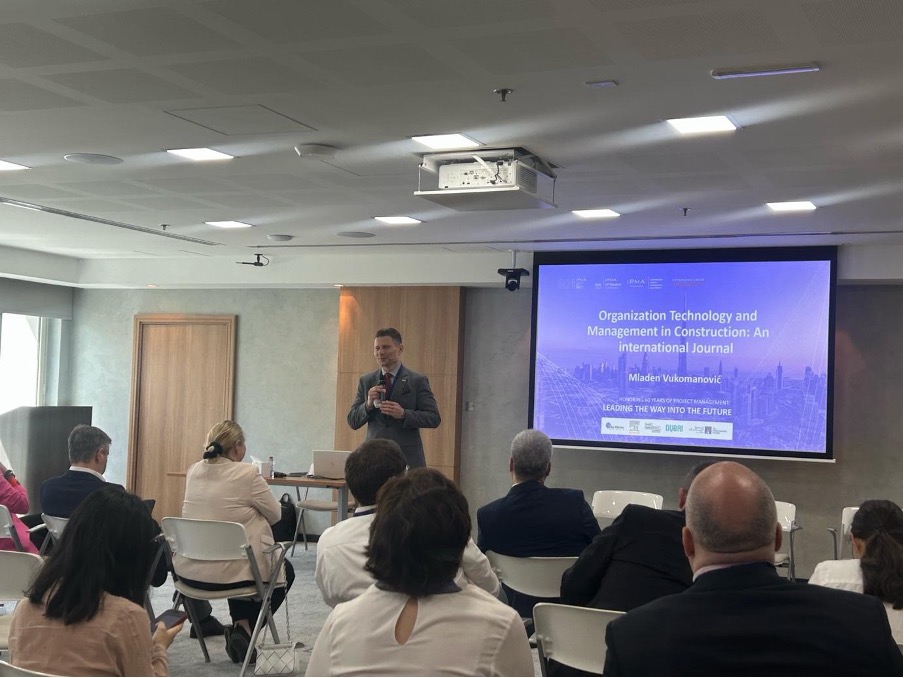

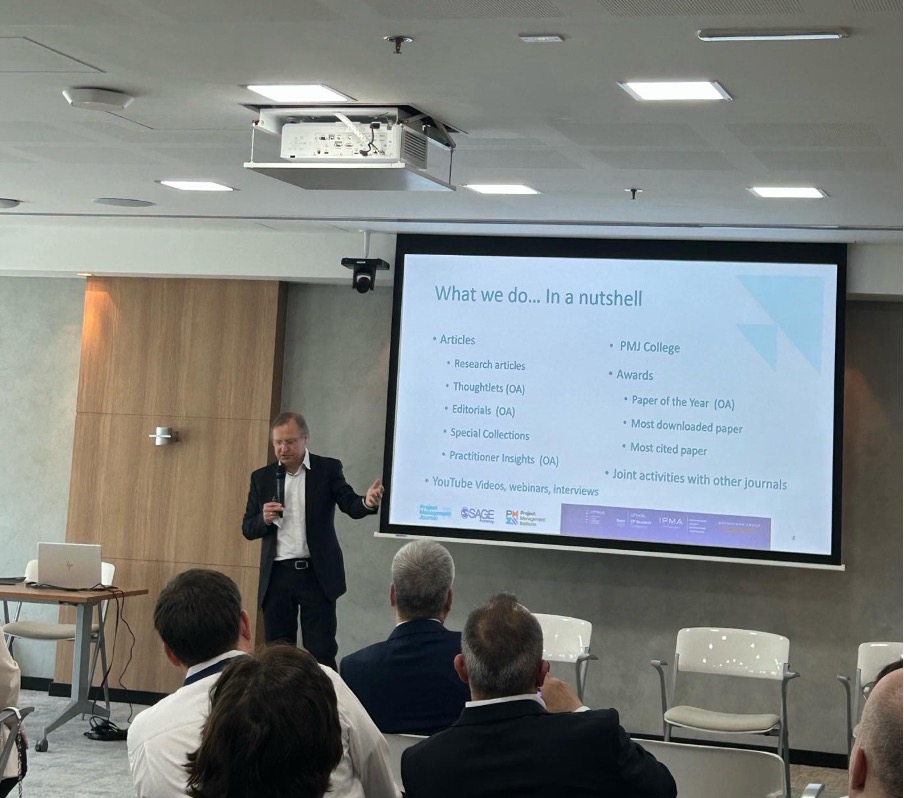

European Project Management Journal presented at the 13th IPMA Research Conference Read More »

